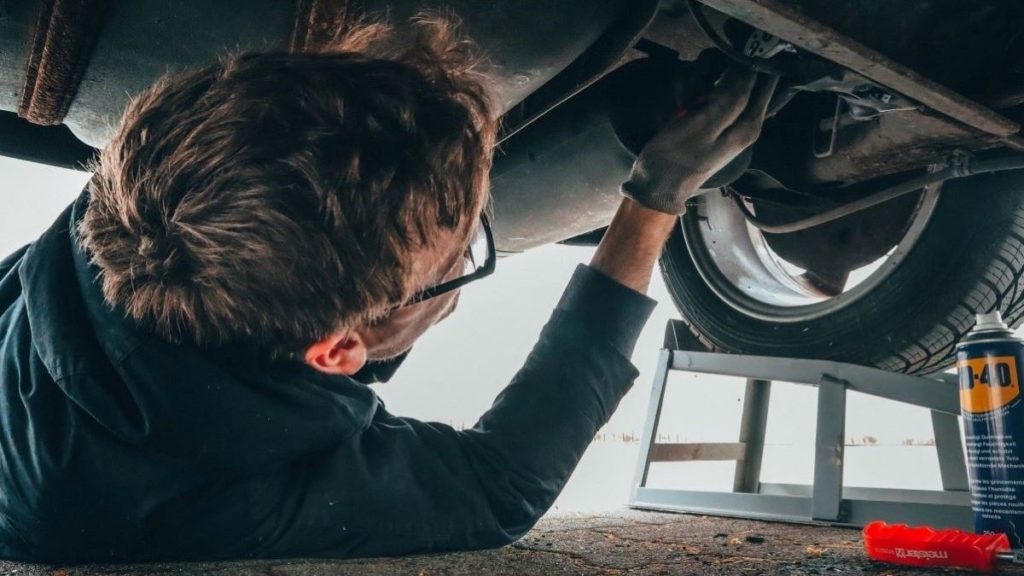Photo by Malte Lu from Pexels
All vehicles in the UK that are more than three years old, whether they’re for personal or commercial use, must pass an annual MOT safety inspection. So if you own a commercial fleet in the UK—or only a single company car—this article is of utmost importance to you.
RELATED ARTICLE: HOW TO AVOID RISK WITH YOUR BUSINESS’S CAR FLEET
Business Vehicles Take a Lot of Abuse
Business vehicles take a lot of abuse. Even in urban areas, such as the cathedral city of Wakefield, there can be rough or tricky roads to drive on. These can damage or weaken a vehicle’s tires, suspension, and more.
Moreover, some employees look after their work vehicle carefully, while others abuse them. They carry loads that are too heavy, tackle roads they would never risk in their own cars, and so on. It’s as if they don’t realize that a breakdown of their company’s vehicle while they are driving will affect them!
Vehicle Safety Inspections Are Required Almost Everywhere
However, like personal vehicles, business fleets in the UK must have MOT certificates once they are older than three years old to ensure they are still roadworthy. This is especially important in cases like those mentioned above.
MOT stands for Ministry of Transport, which no longer exists, as it has been replaced by the UK’s Department of Transport. However, the abbreviation MOT is still in use to describe the annual safety inspections for vehicles that the government still requires.
Additionally, in other areas of the world as well as in the UK, local regulations require business owners to ensure that their company vehicles meet certain safety standards. For instance, in the State of Texas in the US, commercial vehicles must pass an annual safety inspection.
What Happens in a MOT Test?
An MOT inspection will examine the car thoroughly. In other words, the person conducting the inspection will ensure that the lights, brakes, tires, engine emissions, and more are all within legal limits. In short, that person will confirm that the car is roadworthy.
It is important to note that the purpose of the MOT is not necessarily to ensure that your car is in excellent condition, but only that it is safe for being on the road. Therefore, it is usually best to combine the MOT test with a full-service check to ensure that the vehicle is not only roadworthy but also running at its best.
For example, such an inspection will ensure that the vehicle is fuel-efficient and that its tires are aligned and balanced and at the correct pressure. Moreover, the inspection will make sure the car’s air and oil filters are clean and more.
As a side note, if you have a fleet of vehicles, you’ll probably find it helpful to stagger your MOT certifications and the servicing of your vehicles. In this way, you won’t end up with all your vehicles off the road at the same time.
Find a Reliable Garage for Your Fleet’s MOT Tests
Perhaps the best bet for any business is to find a reliable garage that will perform your MOT tests quickly and cost-effectively. Moreover, be sure that the garage will include any additional services you might request.
For example, now you can find the best MOT service within Wakefield from Ossett Tyre House. In this way, not only will you ensure that your vehicles are in great condition and running at peak efficiency, but you will also be able to tell which employees are good at looking after their fleet vehicle. What’s more, you will be able to extend the life of each of your company’s vehicles.
Save Money by Extending the Life of Your Business Fleet
Many businesses avoid MOT tests altogether by selling vehicles as soon as they come up to the time when their first MOT test is due. Occasionally, they will let the car gain its certificate and then put it up for sale, perhaps using it as a pool car in the meantime.
However, this can be expensive in the long run. So before you spend the money to purchase new replacement vehicles for your fleet, stop to compare that cost with the small outlay of cash that is required for parts such as filters, fan belts, spark plugs, and so on.
Browse our blog often for more practical advice to help you run your small business more efficiently.

